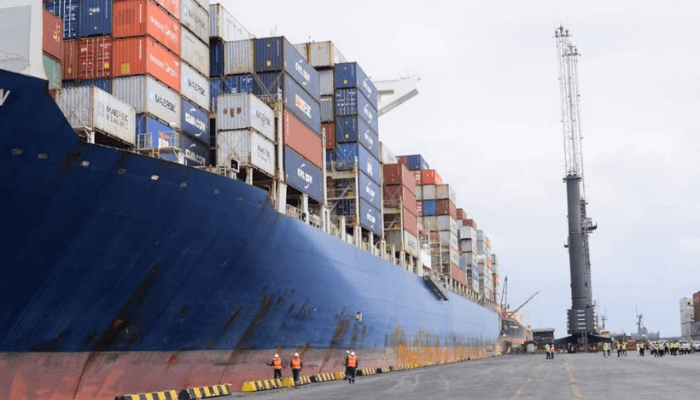New cargo clearance, disposal system will enhance operations, Customs tells Northern business community
By Adeola Ajakaiye
Copyright businessday

The leadership of the Nigerian Customs Service (NCS) has charged stakeholders in the import and export business to leverage on the organisation’s new policy on Automated Overtime Cargo Clearance and Disposal System to boost their operations.
The new system, the leadership said, was designed to deliver an efficient, transparent and Technology- driven process for managing overtime cargo clearance and disposal that will make their operations simple and stress free.
Nsikan Umoh, assistant comptroller-general, stated this Friday, during a one-day sensitisation engagement with terminal operators, shipping companies, members of sister agencies, held in Kano.
The ACG, who was represented by Debora Adeyemi, controller, post clearance audit, zone B, disclosed that initiative marks a turning point in the clearing of cargos in the country, it will reduce manual paper work, and bottleneck associated with clearance of operations.
“It is my honour to welcome you all to this sensitisation programme here in Zone B and D, as we take forward the vision of the Comptroller-General of Customs to deliver an efficient, transparent, and technology-driven process for managing overtime cargo clearance and disposal.
“This initiative marks a turning point in our operations. For years, the challenges of congestion, manual paperwork, bottlenecks, abandoned cargo, and lengthy clearance processes have weighed down trade facilitation and slowed economic activity.
“Today, with the Automated Overtime Cargo Clearance & Disposal System, we are demonstrating that Customs can be both a facilitator of trade and a guarantor of integrity.
“What does this new system bring are: Transparency – Every action is time-stamped, tracked, and recorded. Simplicity Stakeholders can now apply, track, and receive approvals online, without unnecessary physical contact. Accountability – Officers and stakeholders alike are bound by clear roles and strict timelines.
” Other benefits that it brings are: Efficiency Terminal space will be freed faster, consignments will move smoothly, and litigation over disposal will be reduced. Data integrity – All documents, from applications to disposal records, are fully automated and integrated with our Customs servers”, he explained.
Umoh said that the new clearance reform is backed by the Nigeria Customs Service Act, 2023, which provides the legal framework for electronic processes, overtime cargo timelines, and disposal methods.
“As you are aware, the Act empowers the Service to handle overtime consignments after 120 days, with provisions for condemnation, auction, or other disposal methods. This system simply gives life to those legal provisions – with clarity, fairness, and speed.
“For stakeholders in Zone B and D whether you are in Kano/Jigawa, Kaduna, Katsina, Kebbi, Niger/Kogi, or any other command, this is your opportunity to embrace the change. The new platform allows you to manage your consignments from your office or even your mobile phone. It removes the burden of endless letters, visits, and waiting times, while giving you real-time visibility over your application status.
“As we adopt this system, I urge all stakeholders to familiarise yourselves with the process. Train your teams to use the e-platform effectively, as well as engage with Customs officers constructively, so that issues are resolved quickly.
“Nigeria Customs Service is not merely automating a process; we are transforming a culture. The culture of delay, opacity, and congestion is being replaced with a culture of efficiency, transparency, and accountability. This is what the CGC means when he says that innovation and collaboration are the engines of our progress.
“On behalf of the Service, and particularly Zone B and D, I thank all our stakeholders for your presence and partnership. Let us work together to make this reform succeed, not just for Customs, but for the economy of Nigeria as a whole,” he further explained.
The highlight of the sensitization meeting was the two presentations entitled: ” General Overtime On Automation of the Overtime Cargo And Clearance System” delivered by A.A. Abdulkadir, chief superintendent of Customs, Abuja, and ” ICT Process on Automation of Overtime Cargo and Clearance System”, delivered by I.S Mohammed, ACG, Customs, ICT, department sensitisation team, lead, Abuja.
As a follow up to the presentations, some of the stakeholders, during the question-and-answer session, sought clarifications on some aspects of the implementation of the new reform, and made suggestions.



